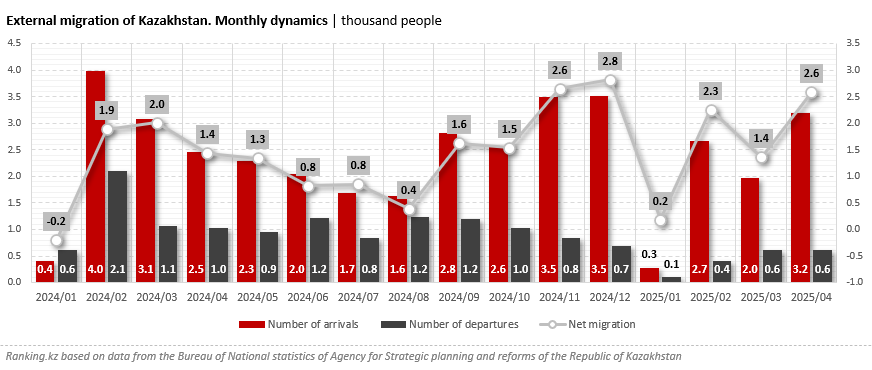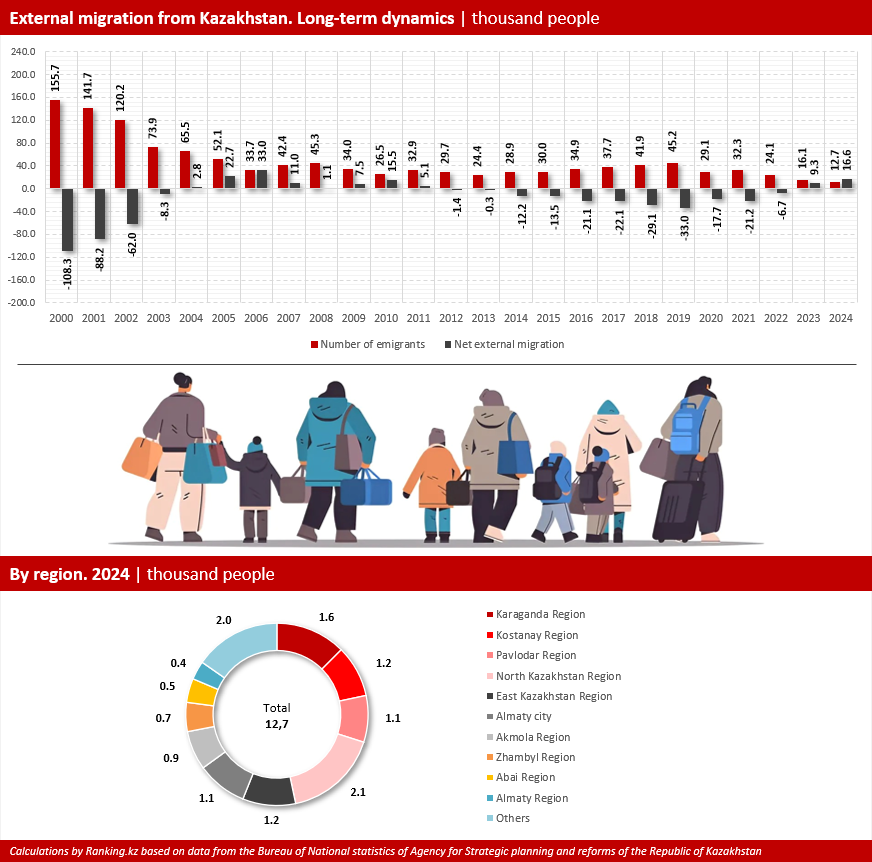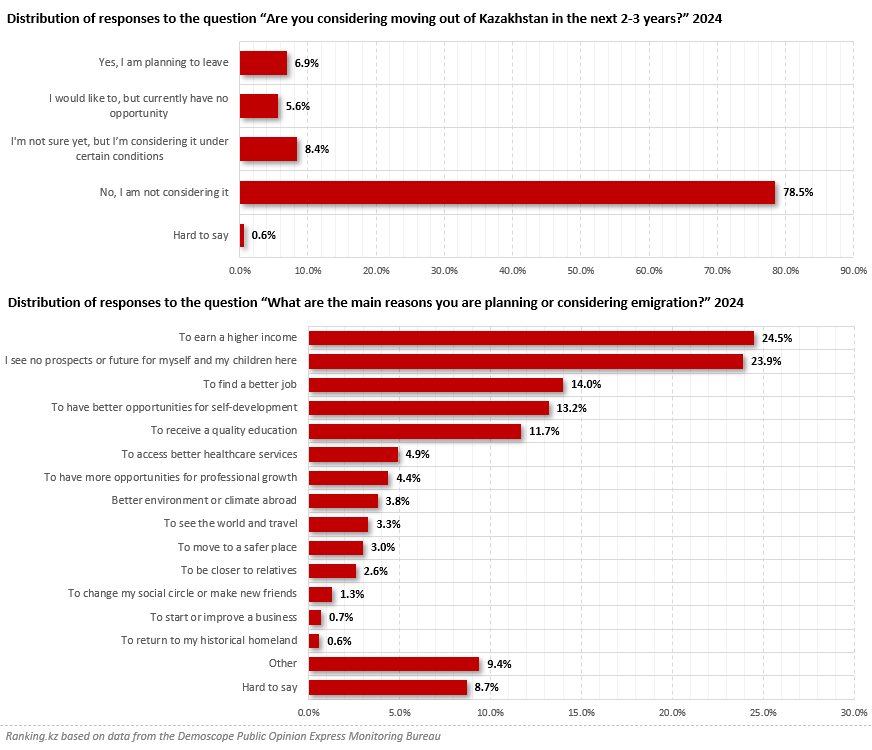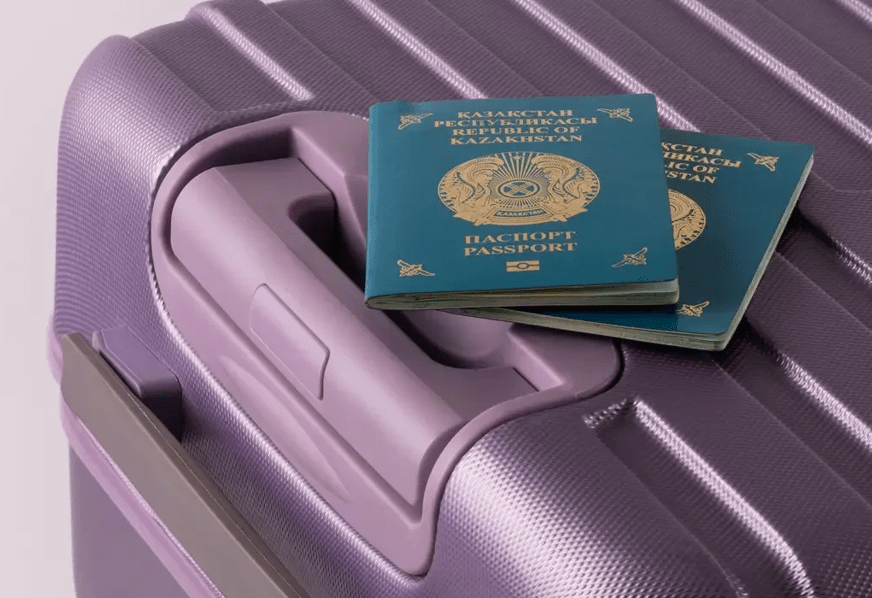There is a noticeable decline in emigration from Kazakhstan. In the first four months of this year, 1.7 thousand people left the country for permanent residence abroad — 2.8 times fewer than in the same period last year (4.8 thousand). These figures were published by the Bureau of National Statistics of the Agency for Strategic Planning and Reforms of the Republic of Kazakhstan.
Immigration dynamics also showed a negative trend. From January to April, 8.1 thousand people moved to Kazakhstan for permanent residence, compared to 9.9 thousand in the same period of the previous year. Nevertheless, the country’s monthly migration balance remains positive: more people are arriving than leaving.

The trend of declining emigration from Kazakhstan has been evident over the past 25 years. In 2000, 155.7 thousand people left the country, while by the end of 2024, this figure had dropped to just 12.7 thousand. Only during certain periods did statistics show an increase in the number of emigrants — specifically between 2006 and 2008, and again from 2013 to 2019. Another key point is that Kazakhstan’s net migration balance, which had remained negative for many years, turned positive in 2023 and 2024. Last year, 23.9 thousand people entered the country, while 12.7 thousand left, resulting in a net gain of 16.6 thousand. The main contributors to emigration in 2024 were the country’s northern and eastern regions. Together, Kostanay, Pavlodar, Abai, North Kazakhstan and East Kazakhstan regions accounted for 47.9% of the total number of people who left.
Several years ago, experts from the United Nations Population Fund in Kazakhstan published a report titled “We, Kazakhstan”, which examined migration trends and presented forecasts through 2050. Over time, many of the report’s predictions have proven accurate.
“The central hypothesis in developing international migration scenarios is that the outflow of people from Kazakhstan will gradually decline. This will be driven by the country’s economic development, which will create strong demand for labor; the diminishing potential for large-scale ethnic migration; and rapid population growth in neighboring southern republics — home to many of the immigrants from Central Asia coming to Kazakhstan,” the report’s authors noted.

Where do Kazakhstan’s emigrants go? The majority still head to Russia: in 2024, 69% of those who left the country moved to the Russian Federation. However, just as in the previous year, the Bureau of National statistics has reported a continued decline in migration to Russia in the first quarter of 2025. From January to March this year, 644 people moved to Russia from Kazakhstan — down by 75.5% compared to the same period in 2024.
Germany ranks second among the destination countries for Kazakhstan’s emigrants. Around 2,000 citizens relocated to Germany in 2024. But here too, the trend is downward: migration to Germany dropped by 67.9% in the first quarter of this year.
A similar trend is observed across most other countries traditionally receiving migrants from Kazakhstan. One exception is Kyrgyzstan, which continues to see a gradual increase in arrivals from Kazakhstan — albeit modest, with around 300 people per year. Most of those moving to Kyrgyzstan come from the southern regions of Kazakhstan.

At the end of last year, the Demoscope Public Opinion Express Monitoring Bureau conducted a survey of Kazakh citizens on their attitudes toward emigration. The survey covered 1,100 respondents from all regions and major cities of the country. One of the questions asked was whether respondents were considering leaving Kazakhstan within the next 2–3 years. The vast majority (78.5%) said no. Meanwhile, 6.9% indicated that they were planning to emigrate, another 5.6% said they would like to but currently lacked the opportunity, and 8.4% were undecided.
The responses of those who are planning or considering emigration in the future provide some insight into their motivations. Nearly a quarter (24.5%) cited the desire to earn a higher income abroad, while 14% said they were looking for better job opportunities. Another 23.9% believe that neither they nor their children have prospects in Kazakhstan. For 11.7%, the primary motivation is the opportunity to receive a quality education abroad. A much smaller portion mentioned the desire to be closer to relatives (2.6%) or to return to their historical homeland (0.6%).



